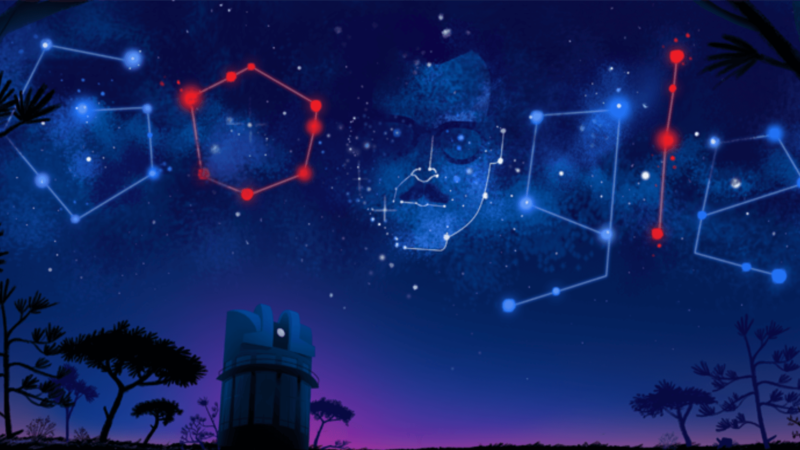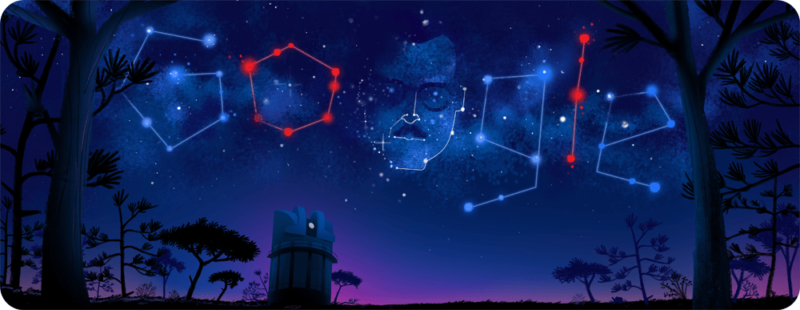
Today’s Google doodle celebrates Guillermo Haro, the first Mexican astronomer to be elected to the Royal Astronomy Academy.
Haro is credited with identifying Herbig-Haro objects — small patches of nebulosity associated with newly born stars which are named for him and George Herbig — and discovering the flare stars, bright red and blue stars within the Orion constellation. According to Google, it was this discovery that earned Haro his place in the Royal Astronomy Academy.
“If you’re stargazing tonight, look for three stars, closely aligned,” writes the Google Doodle team, “These are known as the ‘Three Sisters,’ and they are part of the constellation Orion, representing Orion’s belt. They belong to an astral region that pivoted Mexican astronomer Guillermo Haro to fame.”
Today marks Haro’s 105th birthday. In addition to being part of the Royal Astronomy Academy, he also founded the National Institute of Astrophysics, Optics and Electronics, an organization dedicated to supporting the professional development of science students. Google says the Institute runs an observatory in Sonora, Mexico, that is named for the astronomer.
Haro’s doodle is being displayed on Google’s home page in the US, Mexico and a handful of other countries and leads to a search for “Guillermo Haro.”
The doodle image features the astronomer’s likeness among the stars, highlighting the red and blue flare stars he discovered in Orion’s belt.

The Google team has been in overdrive this past week, posting six different logos since last Wednesday. Leading up to today’s Haro doodle, there was a doodle for Pi Day, one for George Peabody, a doodle to celebrate St. Patrick’s Day and yesterday’s Spring Equinox doodle.
The post Guillermo Haro Google doodle celebrates Mexican astronomer who discovered Orion’s flare stars appeared first on Search Engine Land.
No comments:
Post a Comment